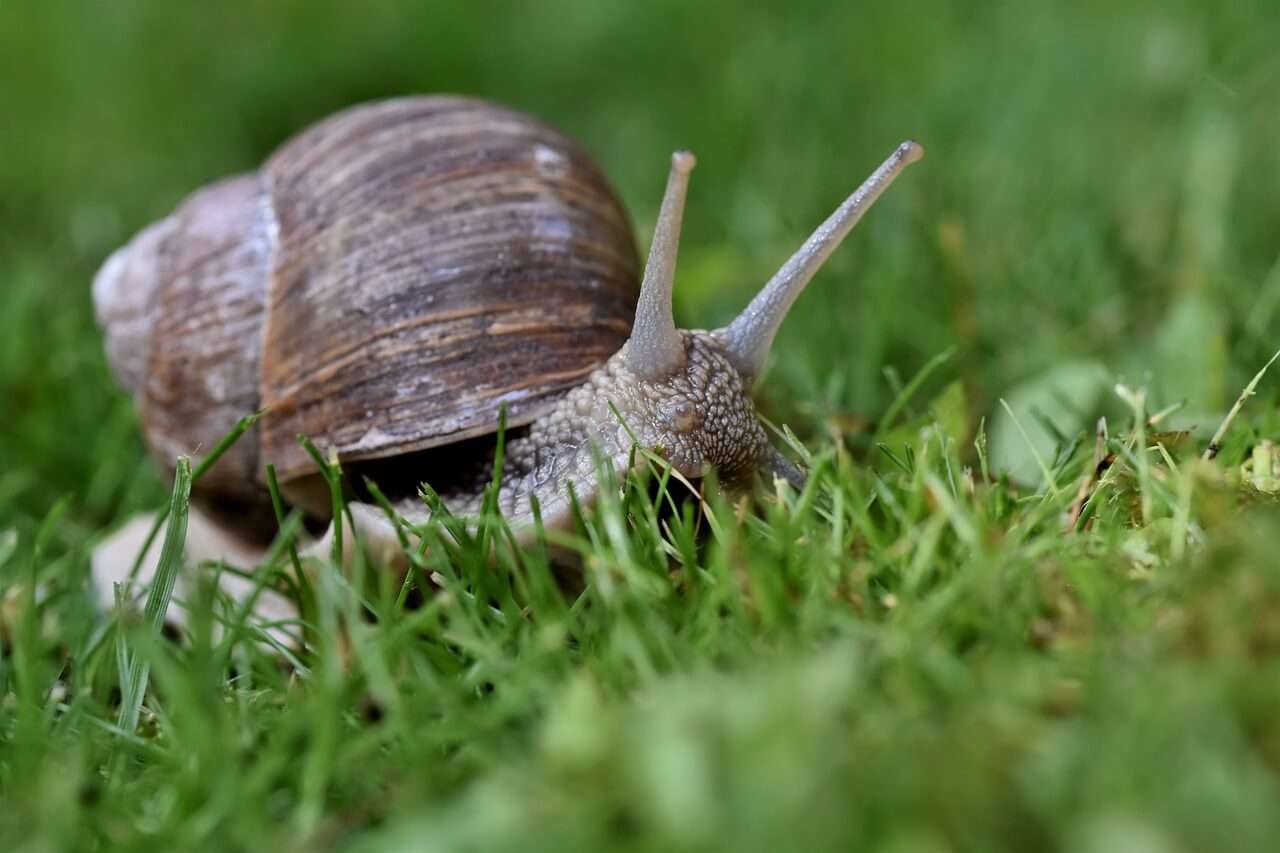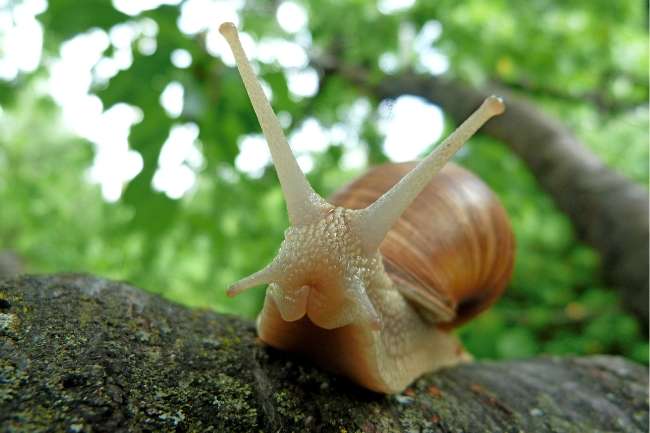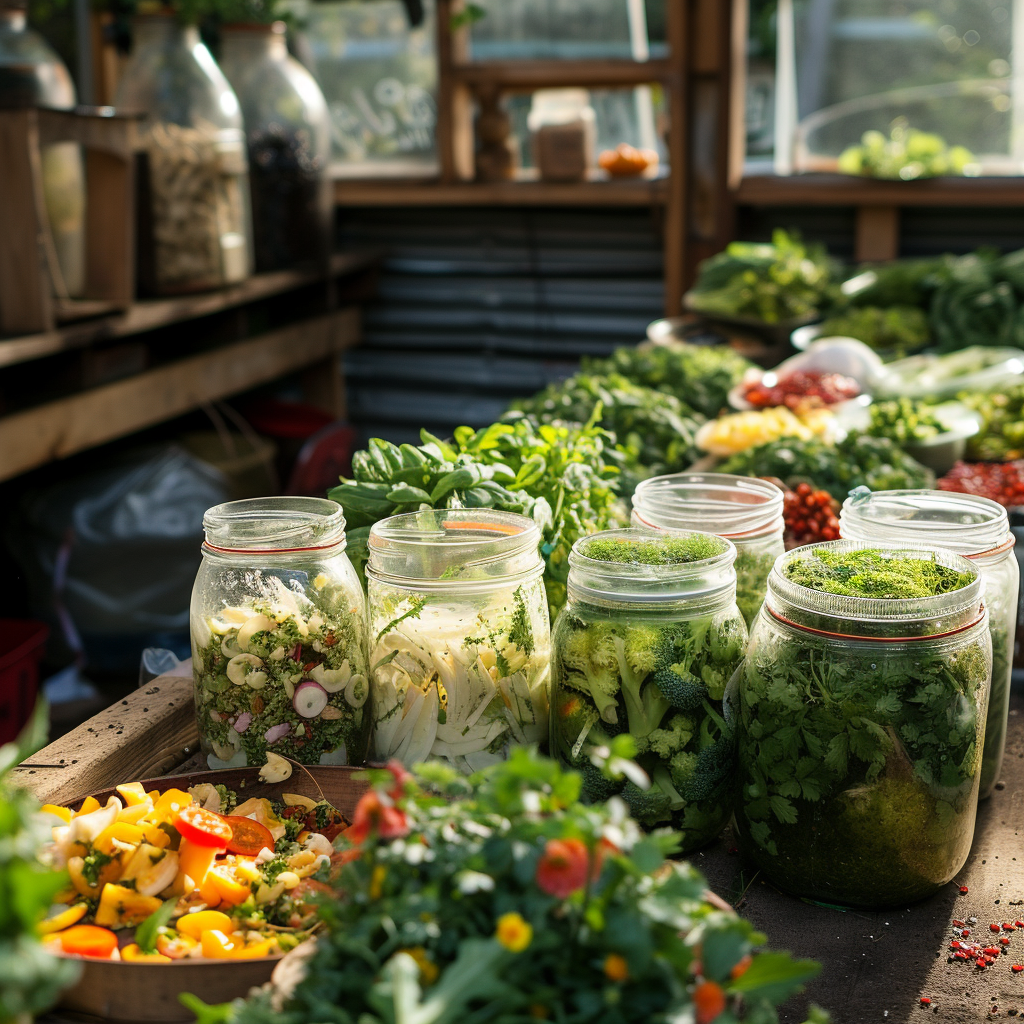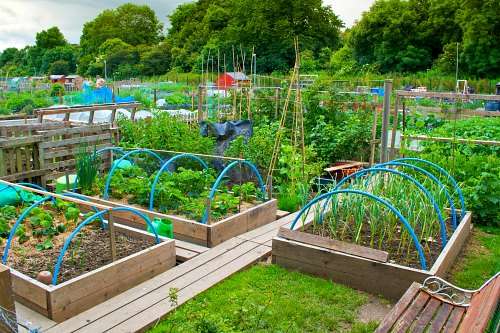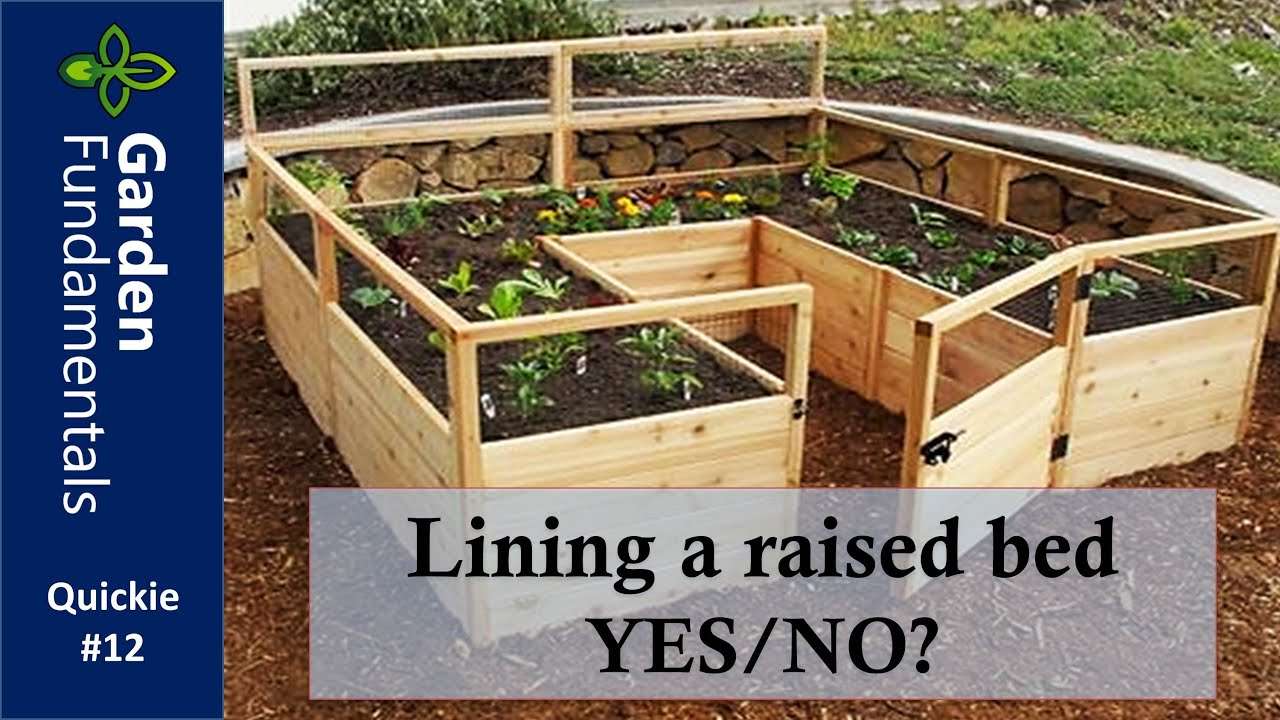Snails may be small and unassuming, but they play a vital role in the ecosystem, particularly in gardens. These slow-moving creatures are not just pests that munch on your plants; they actually contribute to the overall health of the soil. Snails aid in the recycling of dead plant material, which in turn helps with nutrient cycling and enriches the soil. Additionally, they aerate the soil, making it easier for water and air to reach the roots of plants. Their diet consists of bug eggs, other snails, and slugs, which can help control the population of these potential garden pests. Moreover, the presence of snails can attract natural predators, such as birds and frogs, creating a harmonious balance in the garden. Even once snails decompose, they provide a source of calcium, benefiting other plants in the vicinity. However, it is important to note that a large population of snails can become a serious pest, causing damage to plants and potentially reducing crop yields. Therefore, it is crucial to be aware of methods available to control snails, whether through killing them, using barriers, or attracting their natural predators. Ultimately, the choice is yours, but understanding the effects snails can have in the garden is essential for maintaining its health and productivity.

The Importance of Snails in the Ecosystem
Snails may seem like slow, slimy creatures that we often overlook in the natural world. However, they actually play a vital role in the ecosystem. Their presence can have benefits not only in the garden but also in the overall health and balance of the environment. Let’s explore the various ways in which snails contribute to the ecosystem and the importance of managing them effectively in our gardens.
Role of Snails in the Ecosystem
Snails have a significant role to play in the delicate balance of the ecosystem. They are considered decomposers, which means they help break down organic matter, such as dead plant material. By consuming and recycling dead plant material, snails contribute to nutrient cycling and soil health. This decomposition process is crucial for the overall health of the ecosystem as it allows nutrients to be released back into the soil for other organisms, including plants, to utilize.
Contribution to Nutrient Cycling and Soil Health
As mentioned before, snails play a crucial role in nutrient cycling and soil health. When snails consume dead plant material, they break it down into smaller pieces. These smaller organic particles then decompose further, releasing essential nutrients back into the soil. These nutrients, including nitrogen, phosphorus, and potassium, are vital for plant growth and overall soil fertility. By aiding in the decomposition process, snails contribute to a healthy and nutrient-rich soil ecosystem.
Aeration of Soil by Snails
In addition to their role in nutrient cycling, snails also contribute to soil aeration. As they move through the soil, snails create small tunnels and burrows. These passages help to loosen and aerate the soil, allowing air, water, and beneficial microorganisms to penetrate deeper into the ground. The aeration of soil promotes healthier root growth for plants and enables better absorption of nutrients. Snails, with their constant movement and burrowing activities, can enhance the overall structure and quality of the soil.
Snail Diet: Bug Eggs, Snails, and Slugs
Snails have a varied diet, which includes not just dead plant material but also other organisms. They are known to consume bug eggs, snails, and slugs. By preying on these pests, snails contribute to natural pest control in the garden. This natural control helps to maintain a balanced population of pests, preventing them from becoming overwhelming and causing damage to plants. Snails’ ability to control the population of bug eggs, snails, and slugs can be beneficial for gardeners looking to protect their plants organically.
Attracting Natural Predators to the Garden
The presence of snails in the garden can also attract natural predators who feed on them. These predators can include birds, frogs, toads, and even other insects. Having a diverse ecosystem with a variety of organisms helps to establish a natural balance, where predators keep the population of snails in check. By attracting natural predators to the garden, snails indirectly contribute to maintaining a healthy and thriving garden ecosystem.
Benefits of Snails in the Garden
While snails can have a positive impact on the overall ecosystem, they also provide several benefits directly in the garden setting. Let’s explore how snails can be advantageous for gardeners and the plants they cultivate.
Recycling Dead Plant Material
One of the most significant benefits of snails in the garden is their role in recycling dead plant material. As mentioned earlier, snails consume dead plant matter, breaking it down and aiding in the decomposition process. This recycling of dead plant material helps to maintain a clean and tidy garden environment, as it prevents the accumulation of decaying organic matter. By recycling dead plant material, snails support overall garden cleanliness and contribute to a healthier growing environment for plants.
Source of Calcium for Plants
Another benefit of snails in the garden is their ability to provide a source of calcium for plants. Calcium is an essential nutrient for plant growth and development, playing a crucial role in cell formation and maintaining structural integrity. When snails decompose, they release calcium back into the soil. This calcium can then be utilized by plants as they grow, ensuring proper calcium levels and supporting healthy plant development.
Eating Weak Plants
Snails have a preference for weak and decaying plants. While this may seem like a negative aspect, it can actually benefit gardeners in the long run. Snails tend to target plants that are already struggling, either due to disease, nutrient deficiencies, or environmental stress. By consuming weak plants, snails help eliminate potential sources of further disease and reduce competition for healthy plants. In a way, snails act as natural selectors, supporting the survival of stronger and more resilient plant species in the garden.
Improvement of Soil Quality
Snails’ burrowing activities and constant movement in the soil contribute to its overall quality and structure. Their tunnels and burrows help with soil aeration, allowing air and water to penetrate deeper into the ground. The improved aeration promotes healthier root growth and enhances the availability of nutrients for plants. Additionally, the organic matter produced through snail decomposition adds to the soil’s overall fertility and provides an enriched environment for plants to thrive.

Managing Snails in the Garden
While snails can bring numerous benefits to the garden, they can also become a serious pest if their population grows too large. To maintain a healthy balance and prevent excessive damage, it’s essential to effectively manage snails in the garden. Let’s explore various methods for controlling snails and minimizing their negative impact on plants and the overall ecosystem.
Snails as Pests: Control Methods
When snails proliferate and their population becomes unbalanced, they can cause significant damage to garden plants. Their feeding activities can result in the destruction of leaves, flowers, and fruits, ultimately impacting the overall aesthetics and productivity of the garden. To control snails as pests, various management methods can be employed, ranging from physical barriers to chemical controls.
Different Techniques to Control Snails
A combination of techniques can be used to effectively control snails in the garden. One method is the use of barriers, such as copper tape or gravel borders, to prevent snails from reaching vulnerable plants. These barriers create a physical deterrent, forcing snails to change their path or find alternative food sources.
Another approach is to attract natural predators to the garden. By creating habitats and providing food sources for predators like birds, frogs, and toads, gardeners can encourage these creatures to prey on snails naturally. This method helps maintain a balanced snail population without relying on chemical controls.
Use of Barriers
Barriers are a popular and environmentally friendly method of snail control. Copper tape, for example, creates an electric charge when snails come into contact with it. This charge acts as a deterrent and repels snails from the protected area. Similarly, gravel borders create a rough and uncomfortable terrain for snails, making it difficult for them to access vulnerable plants. By implementing physical barriers, gardeners can effectively control snails while minimizing harm to the environment.
Attracting Natural Predators
Attracting natural predators is an excellent way to control snails in an organic and sustainable manner. By creating habitats that provide shelter, water, and food sources, gardeners can encourage beneficial organisms to thrive in the garden. Birds, frogs, and toads are known to feed on snails, and by attracting these predators, gardeners can effectively control the snail population. Planting native species of plants, installing bird feeders, and creating water features are a few ways to attract natural predators to the garden.
Chemical Methods for Snail Control
While physical barriers and attracting natural predators are preferable methods for controlling snails, there may be situations where chemical methods become necessary. Chemical snail baits, for example, can be used to target snails specifically and reduce their numbers. However, it is important to exercise caution when using chemical controls, as they can potentially harm beneficial organisms and disrupt the overall balance of the ecosystem. Gardeners should always follow the instructions provided by manufacturers and consider the potential impacts on the environment before using chemical methods.

Considerations for Snail Management
It is essential to approach snail management with careful consideration, taking into account the overall impact on the ecosystem and making conscious choices that align with personal values and beliefs. Gardening practices should aim to strike a balance between managing snails effectively and minimizing harm to the environment.
Personal Choice in Killing Snails
The decision to kill snails as part of snail management is a personal choice that depends on individual beliefs and values. Some gardeners may choose to eliminate snails to protect their plants from damage, while others may prefer to coexist with snails and manage their population through alternative methods. Respecting personal choices and understanding the potential consequences of snail control measures is vital to maintaining a harmonious relationship between gardeners and the natural world.
Alternatives to Killing Snails
For those who prefer not to kill snails, alternative methods can be employed to manage their population effectively. Physical barriers, such as copper tape or gravel borders, can prevent snails from accessing vulnerable plants without causing harm to the snails themselves. Attracting natural predators, as discussed earlier, is another eco-friendly approach to maintaining a balanced snail population. By exploring alternative methods, gardeners can manage snails effectively while promoting a more sustainable and environmentally friendly garden.
Minimizing Harm to the Ecosystem
Whatever methods of snail management are utilized, it is crucial to minimize harm to the ecosystem as a whole. When using chemical controls, for example, gardeners should carefully follow instructions and apply the products in accordance with recommended guidelines. It is also essential to consider the potential impacts on non-target organisms and ensure that chemical controls are used sparingly and only when other methods have proven ineffective. By minimizing harm and taking a holistic approach to snail management, gardeners can maintain a healthy and balanced garden ecosystem.

Negative Effects of Snails in the Garden
While snails can bring several benefits to the garden, they can also have negative effects if their population becomes out of control. It’s essential to be aware of the potential issues associated with snails to effectively manage their presence in the garden.
Damage to Plants
Snails are voracious herbivores and can cause significant damage to garden plants. They feed on leaves, flowers, and fruits, leaving behind unsightly holes and chewed foliage. This damage not only affects the aesthetics of the garden but can also weaken plants and make them more susceptible to diseases and other pests. Moreover, severe damage can result in stunted growth, reduced flowering, and even death of plants in extreme cases.
Potential Reduction in Crop Yields
In addition to damaging ornamental plants, snails can also impact crop yields. If left unchecked, snails can consume a significant portion of vegetable or fruit crops, leading to reduced harvests and economic losses for gardeners. The feeding activities of snails can be particularly detrimental during crucial growth stages, such as when plants are young and vulnerable. It is essential to manage snails effectively in agricultural settings to maximize crop productivity and ensure a successful harvest.
Impact on Garden Aesthetics
Snail damage can have a negative impact on the overall aesthetics of the garden. Their feeding activities can create unsightly holes and ragged foliage, diminishing the visual appeal of ornamental plants. In a well-maintained garden, snail damage can be particularly noticeable and may require additional efforts to restore the aesthetic value. By effectively managing snails, gardeners can maintain the beauty of their gardens and ensure that plants flourish without being marred by snail damage.
In conclusion, snails play a significant role in the ecosystem and can have benefits in the garden. They contribute to nutrient cycling and soil health, aerate the soil, and can help control pest populations. However, when snails become a pest themselves, it is important to employ effective management techniques to prevent damage to plants and potential reduction in crop yields. By considering alternative methods, minimizing harm to the ecosystem, and striking a balance between managing snails and promoting a healthy garden ecosystem, gardeners can enjoy the benefits of snails while minimizing their negative effects.
